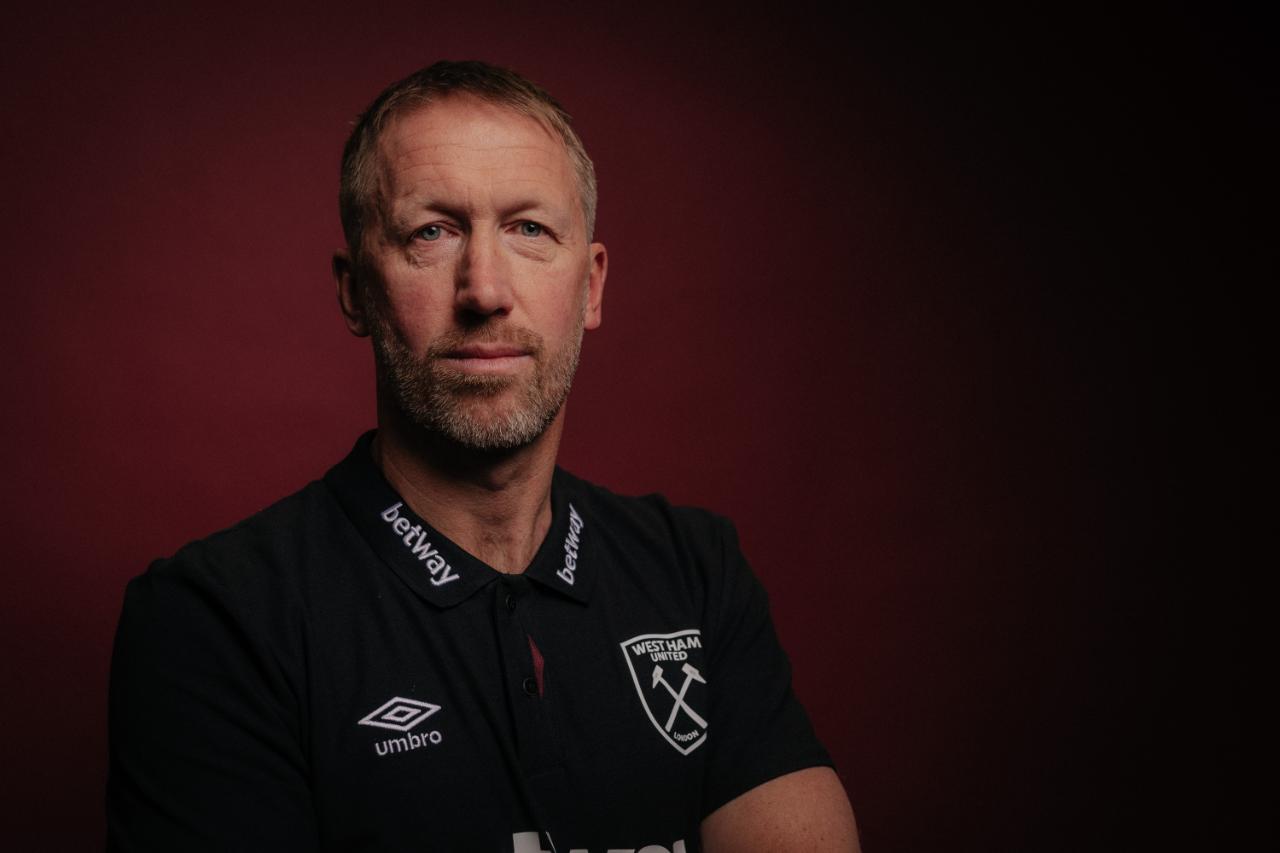Born: 20 May 1975, Solihull, England
Graham Potter’s footballing journey is as unique as it is incredible.
Born in Solihull, a town in the far southeast suburbs of Birmingham, in May 1975, Potter joined local club Birmingham City as a teenager in 1992. The young left-back departed St Andrews Stadium for First Division rivals Stoke City the following year, becoming a first-team regular in 1995/96 and earning a move to Premier League Southampton at the end of that season.
After winning an England U21 cap while with the Saints, Potter returned to the West Midlands with West Bromwich Albion, then played out his career in the lower divisions with York City, Boston United and Macclesfield Town.
It was then that Potter’s career took a path few professional footballers’ have taken.
Rather than take on a different occupation or remain at a club as a coach, Potter focused on furthering his education to prepare himself for a career in coaching, earning a degree in social sciences from the Open University before undertaking a master’s degree in leadership and emotional intelligence at Leeds Metropolitan University.
It was at the latter institution he picked up some of his earliest coaching experience, working with the university’s Leeds Carnegie and Combined Universities sides, before later acting as football development manager for the University of Hull and technical director for the Ghanaian national women’s team at the 2007 FIFA Women’s World Cup.
At the end of 2010, fate played its part as his former Boston United teammate Graham Jones recommended Potter to Daniel Kindberg, the Chairman of Swedish fourth-tier club Östersund, and the latter appointed the Englishman for the 2011 season.
Over the next five seasons, Potter guided Östersund to three promotions, while he and Kindberg introduced a ‘culture academy’ at the club, with players and staff putting on theatrical productions as part of their holistic development.
In 2017, Östersund won the Swedish Cup and qualified for the UEFA Europa League, where they famously gave Arsenal a scare, winning 2-1 at Emirates Stadium in the round of 32 second leg, but going down 4-2 on aggregate.
After being twice voted Sweden’s Manager of the Year, Potter returned home – sort of – when he was appointed Swansea City manager in summer 2018. In his single season in South Wales, Swansea finished tenth in the EFL Championship, a decent performance considering the Swans had been relegated the previous season, and reached the FA Cup quarter-finals.
Those achievements were recognised by Brighton & Hove Albion, who appointed him to replace former Hammer Chris Hughton. Playing an attractive brand of attacking, possession-based, tactically flexible football, Potter’s Seagulls flew to record-high finishes and points totals, climaxing in a ninth-place finish in 2021/22.
With his stock continuing to rise, Potter was linked with a number of high-profile roles and was ultimately appointed as Chelsea head coach in September 2022. He guided the Blues to UEFA Champions League wins over AC Milan and Borussia Dortmund before departing Stamford Bridge in April 2023.
He continued his coaching education and also provided insightful and educated punditry on television and radio, before the married father-of-three brought his knowledge, expertise and nous to West Ham United in January 2025.
